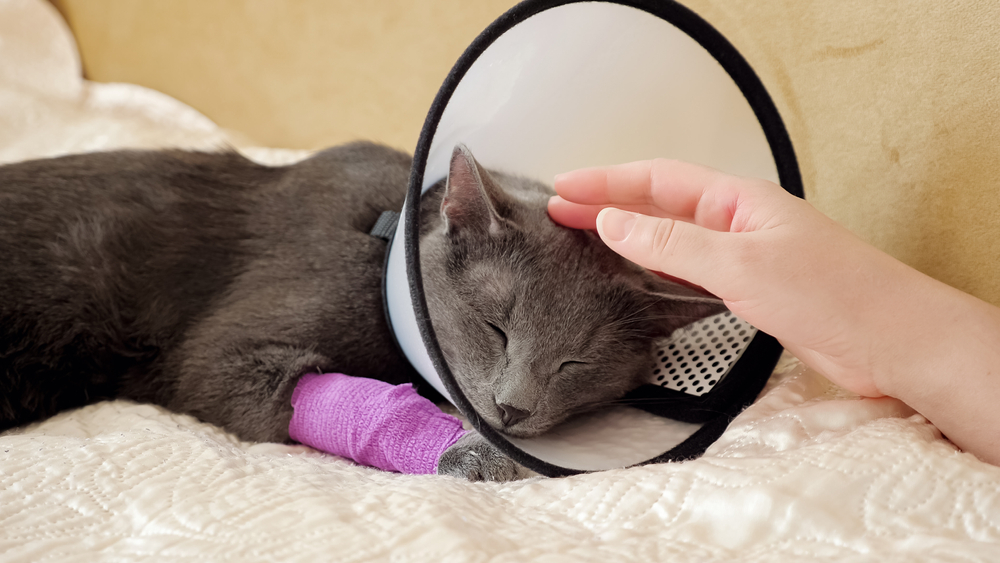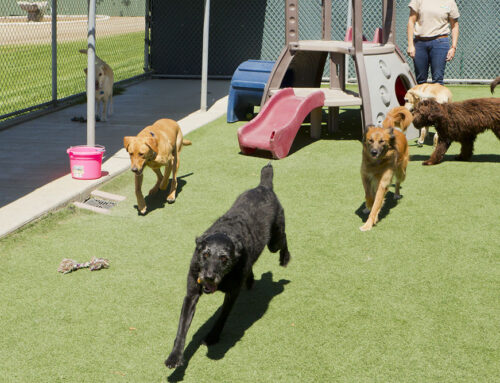Accidents, injuries, and illnesses can strike when we least expect them, and this is equally true for our pets. When it comes to your furry friend’s health, knowing when to seek urgent versus emergency veterinary care can be the difference between life and death. Both situations require prompt attention, but the severity and immediacy of the condition dictate the response. Our Animal Clinic of Council Bluffs team wants you to be able to distinguish between urgent and emergency veterinary care, so you can make an informed decision about your pet’s care.
Defining urgent veterinary care
Urgent veterinary care is required for pets with medical issues that need attention within 24 hours but are not immediately life-threatening. Such issues can cause your pet significant discomfort or pain and may worsen if not addressed promptly. However, typically they do not pose an immediate risk to their life.
Common reasons for pet urgent care
While any pet illness or injury is cause for concern, some health conditions do not constitute an emergency but do require urgent care. These include:
- Minor injuries — Cuts, scrapes, or minor lacerations that are not bleeding severely will require cleaning and possibly sutures.
- Vomiting or diarrhea — Vomiting and diarrhea that are persistent but not accompanied by other severe signs, such as lethargy or blood in the stool, require urgent care.
- Ear infections — A pet who shows signs that include scratching at the ears, discharge, or a foul odor in the ears, needs urgent care.
- Mild allergic reactions — These minor reactions may include swelling, hives, or itching that does not impact breathing.
- Behavioral changes — Sudden behavioral changes that are concerning but cause no immediate harm, such as a change in appetite or activity level, should be checked by our Animal Clinic of Council Bluffs team.
Defining emergency veterinary care
Emergency veterinary care is required when your pet’s life is at immediate risk and delayed treatment could lead to severe consequences, including death. Veterinary emergency clinics have dedicated ICUs and surgical suites and can triage, stabilize, and perform emergency surgery on pets in critical situations.
Typical scenarios for veterinary emergency care
Any serious threat to your pet’s health can be a pet emergency. Examples include:
- Severe trauma — Major injuries from accidents, such as being hit by a car, severe bleeding, or broken bones, are emergencies.
- Breathing difficulties — Labored breathing, choking, or respiratory distress can threaten your pet’s life.
- Unconsciousness or seizures — Sudden collapse, unresponsiveness, and seizure activity constitute veterinary emergencies.
- Poisoning — If your pet ingests a toxic substance, such as certain foods, chemicals, or medications, they require immediate care.
- Severe allergic reactions — Anaphylaxis, which is characterized by a swollen face or throat, difficulty breathing, or collapse, can be fatal without emergency treatment.
- Severe vomiting or diarrhea — If vomiting or diarrhea is accompanied by blood, lethargy, or dehydration, your pet needs immediate care.
- Heatstroke — Heatstroke is always an emergency in pets. Signs include excessive panting, drooling, vomiting, and collapse.
Preparing for veterinary emergencies

Being prepared for emergencies can significantly impact your pet’s outcome. When you are prepared, you will likely stay calm as you take action, which is essential. These tips will ensure you’re ready:
- Know our Animal Clinic of Council Bluffs contact information — Save our contact and after-hours emergency information where it’s easily accessible. When traveling, know in advance the location of the nearest veterinary emergency clinics.
- Keep a pet emergency kit — Keep pet first aid kits that include essentials, such as bandages, antiseptics, and a muzzle, at home and in your car. These kits do not replace veterinary care but can help stabilize your pet until they get professional help.
- Learn pet first aid — The American Red Cross offers in-person and online classes that teach basic pet first aid.
- Consider pet insurance — Pet insurance helps cover unexpected veterinary costs, which can be substantial in emergencies.
Distinguishing between urgent and emergency veterinary care can help you understand your pet’s needs during any health scare and can save time, since you know where to seek help. Be prepared and able to recognize the signs and the severity of your pet’s condition, so you can confidently navigate these stressful situations.
If you have any questions about your pet’s health and safety, contact our Animal Clinic of Council Bluffs team. We can advise you so that your pet has the best possible outcome.






Leave A Comment